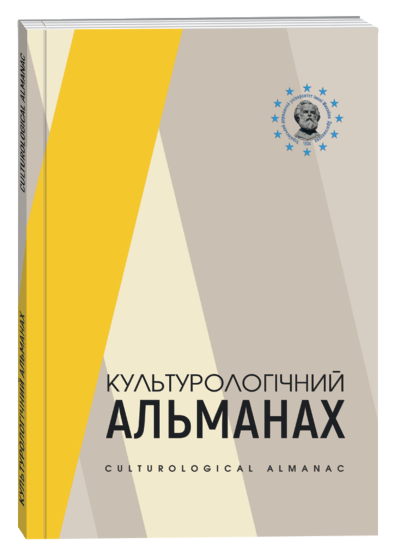CULTURAL SELF-IDENTITY OF THE GREEKS OF PRIAZOVIA IN THE CONTEXT OF FUNERAL RITES
DOI:
https://doi.org/10.31392/cult.alm.2022.4.6Keywords:
ethnic history, traditional culture, family rites, funeral rites, self-identity, Greeks of the Azov regionAbstract
The work examines the system of funeral and memorial rites of the Greeks of the Azov region as one of the means of manifesting their cultural self-identity. The author has determined the potential of the funeral and memorial rites of the Greeks of the Azov region in the system of ethnic culture for the purpose of reflecting generational traditions, moral and ethical values, and preserving one’s own identification. We can state the fact that among the ethnic communities that live compactly in the Northern Azov region, the traditionality of cultural development in combination with the canons of the Orthodox Church is characteristic of the Greek ethnic community. It should be noted that the purpose of funeral rites and rituals is not to publicly demonstrate one’s grief. On the contrary, they universally refuse an emotional connection with a once living person and establish a new emotional connection with the same person already as with the deceased. For them, a funeral is a public acknowledgment that in the future they will have to live without a loved one. Two aspects can be traced in the funeral rites of the Mariupol Greeks. First, the idea that the soul of the deceased should find its place in the afterlife, and secondly, the feeling of a strong connection between the deceased and his living relatives remains. Their lives are constantly accompanied by rites and ceremonies, both in the world of the living and in the afterlife. The isolation of the deceased, which was inspired by myths, acquired a special meaning and was transformed from the ancient tradition into burial rites, which in their traditional form were preserved throughout the entire ethnic history of the Greek community in Ukraine, and are diligently observed today. Many traditions have been preserved, they operate in full or in part with occasional adjustments. The formation of ritual culture took place in parallel with the genesis of the nation on the basis of its traditional occupations, spiritual values and was of exceptional importance for realizing the prerequisites of the ethnic unity of the Greek community.
References
Джуха И. (1993). Одиссея мариупольских греков: очерки истории. Вологда : ЛиС. 160 с.
Князева Т. (2007). Традиційна культура греків Приазов’я : дис. ... канд. мистецтв : 17.00.01. 177 с.
Манякін О. (2018). Вплив православ’я на обрядові традиції грецької спільноти Північного Приазов’я. Вісник Маріупольського державного університету. Серія «Філософія, культурологія, соціологія». Вип. 15. С. 44–50.
Окрестности Мариуполя: взгляд этнографа. История заселения, культура и быт жителей края. Конец ХVІІІ–ХІХ в. / Н. Тыркалова и др. (2018). Мариупольский краеведческий музей. Мариуполь : Рената. 64 с.
От античности до наших дней : Очерки истории и культуры греков Украины / ред. и сост. Н. Коссе (2009). Мариуполь. 298 с.
Пономарьова І. (2007). Греки Приазов’я: етнонаціональні процеси в аспекті трансформації традиційної культури (кінець XVIII – начало XXI ст.) : дис. ... докт. іст. наук : 07.00.05. Київ. 356 с.
Пономарьова І. (2006). Етнічна історія греків Приазов’я (кінець ХVIII–ХХI ст.). Історико-етнографічні дослідження. Київ : Реферат. 300 с.
Рецепт приготовления колива (2015). Храм Преподобного Серафима Саровского. Элладская православная церковь. Салоники. URL: http://www.seraphim.gr/recept-prigotovleniya-koliva/ (дата звернення: 22.12.2022).








